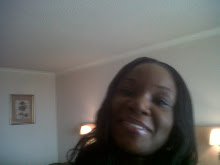One of the books I am currently reading is The Autobiography of Martin Luther King. If you ever wanted to read something inspirational, intellectually stimulating and immensely comforting as it is challenging, try this one.
A few lessons in living and quotes of worth from the book:
Budgeting (talking about his father): he knew the art of saving and budgeting. He has always had sense enough not to live beyond his means.
Getting along with people: My best friends were in Sunday school, and it was Sunday school that helped me to build the capacity for getting along with people.
White people: the Intercollegiate Council (at Morehouse College) convinced me that we had many white people as allies...I had been ready to resent the whole white race, but as I got to see more of white people, my resentment was softened and a spirit of cooperation took its place.
Black ministers: I had seen that most Negro ministers were unlettered, not trained in seminaries, and that gave me pause. I had been brought up in the church and knew about religion, but wondered whether it could serve as a vehicle to modern thinking, whether religion could be intellectually respectable as well as emotionally satisfying.
Ministerial spellbinders: the minister must be both sincere and intelligent...we have too many ministers in pulpit who are great spellbinders and too few who possess spiritual power.
The usefulness of preaching: Preaching should grow out of the experiences of the people. Therefore I as a minister must know the problems of the people that I am pastoring. Too often do educated ministers leave the people lost in the fog of theological abstraction, rather than presenting that theology in the light of people's experiences.
The status quo: religion should never sanction the status quo.
Gandhi: my study of Gandhi convinced me that true pacifism is not non-resistance to evil, but non-violent resistance to evil.
Niebuhr: Reinhold Neibuhr had over-emphasized the corruption of the human nature. His pessimism concerning human nature was not balanced by an optimism concerning divine nature. He is so involved in diagnosing man's sickness of sin that he overlooked the cure of grace.
Coretta: my wife Coretta, without whose love, sacrifices, and loyalty neither life nor would would bring fulfillement.
Rediscovering lost values: I'm not going to put my ultimate faith in the little gods that can be destroyed in an atomic age, but The God Who has been our help in ages past, and our hope for years to come, and our shelter in the time of storm, and our eternal home. The God I am talking about this morning is the God of the universe and the God that will last through the ages. If we are to go forward this morning, we've got to go back and find that God. That is the God that demands and commands our ultimate allegiance.
The individual: a religion that ends with the individual, ends.
Monday, 16 July 2007
Subscribe to:
Post Comments (Atom)

No comments:
Post a Comment